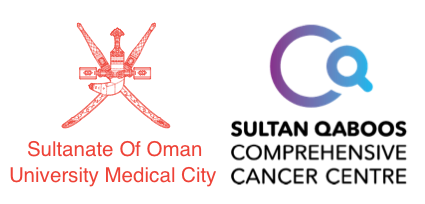


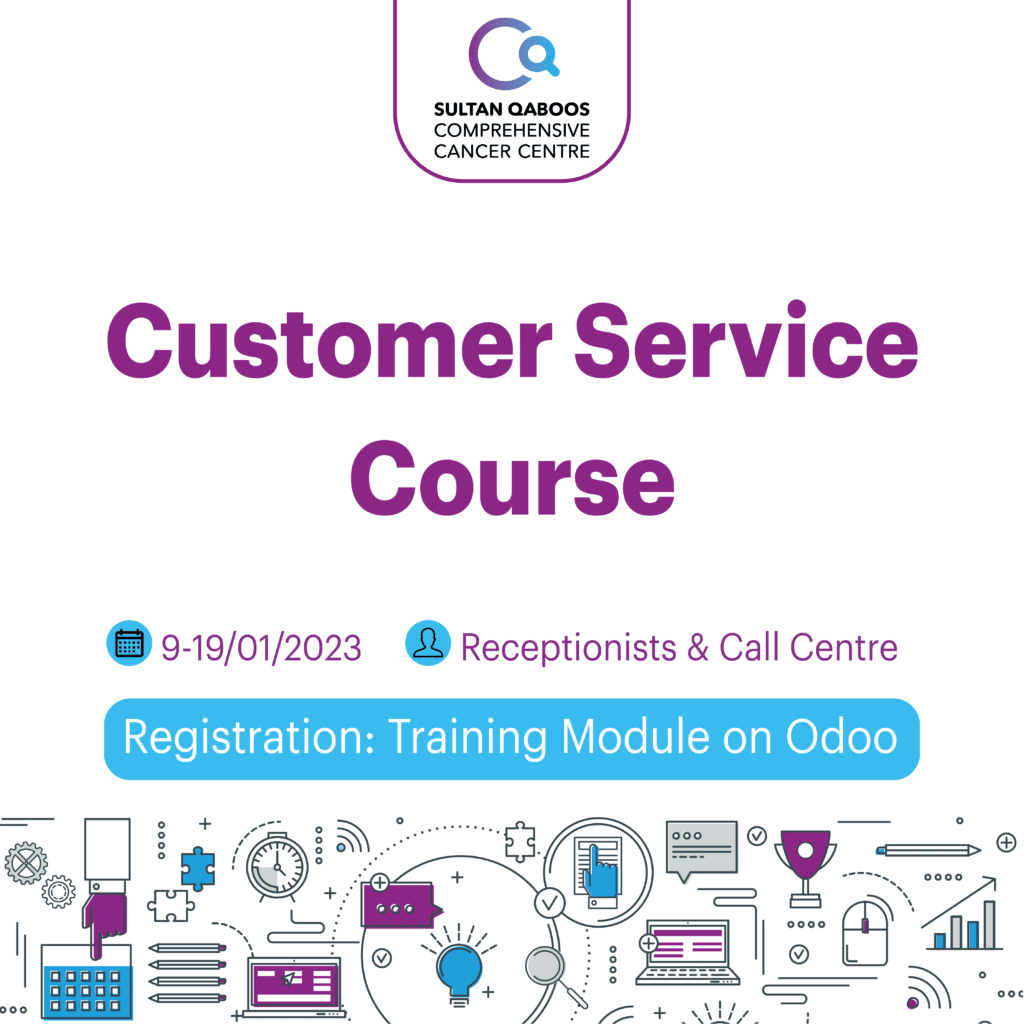
Objectives:
* Practicing effective and professional customer service skills in healthcare organizations.
* Improving the skills of receptionists and call centre staff in answering phone and communication etiquettes.
* Practicing active listening and achieve customer satisfaction.
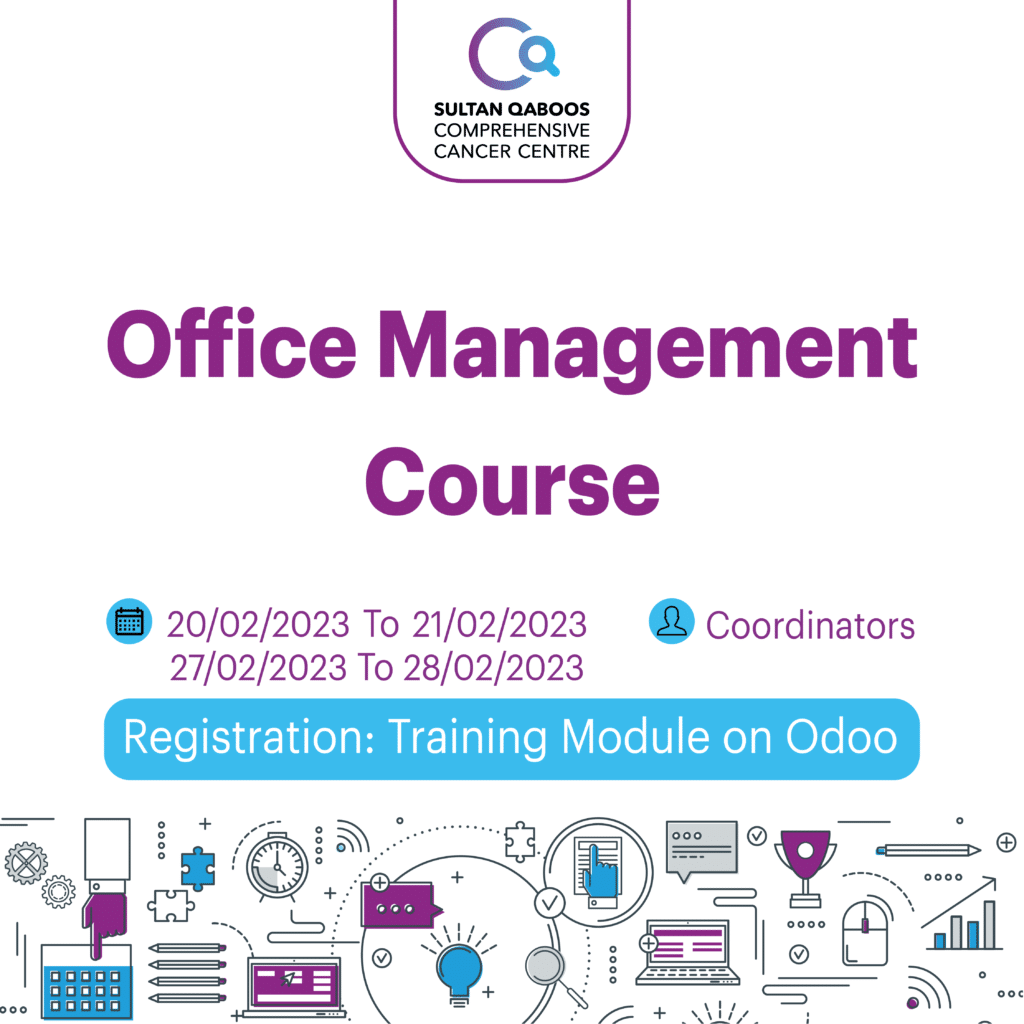
Objectives:
* Train SQCCCRC coordinators to professionally coordinate and facilitate departmental activities, meetings, and minutes taking in details and in proper administrative language.
* Improve coordinators skills in tasks’ priority management, manage records, documentation, and archiving.
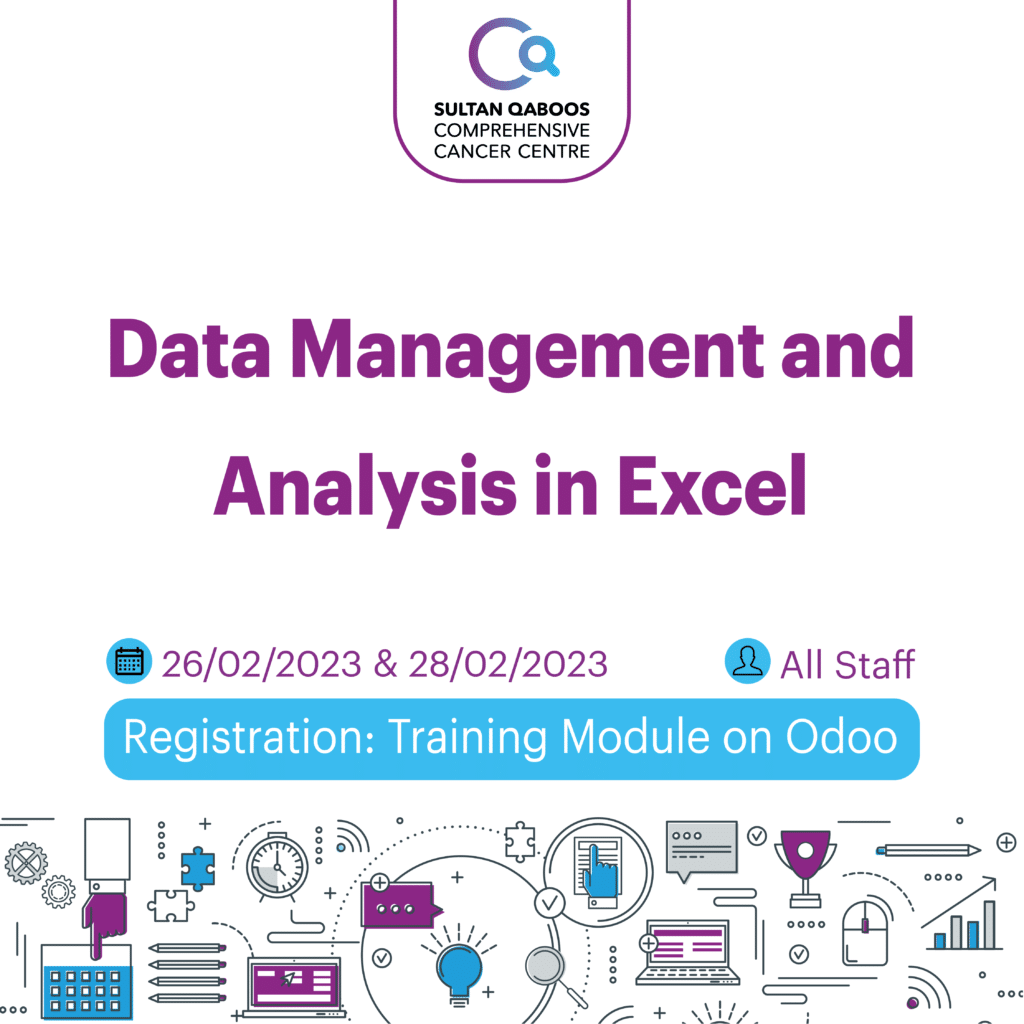
Objectives:
*Train participants on how to use MS Excel for data entry, data management, and basic analysis.
*Ccovers editing data, formatting, and key functions to perform effective data analysis.
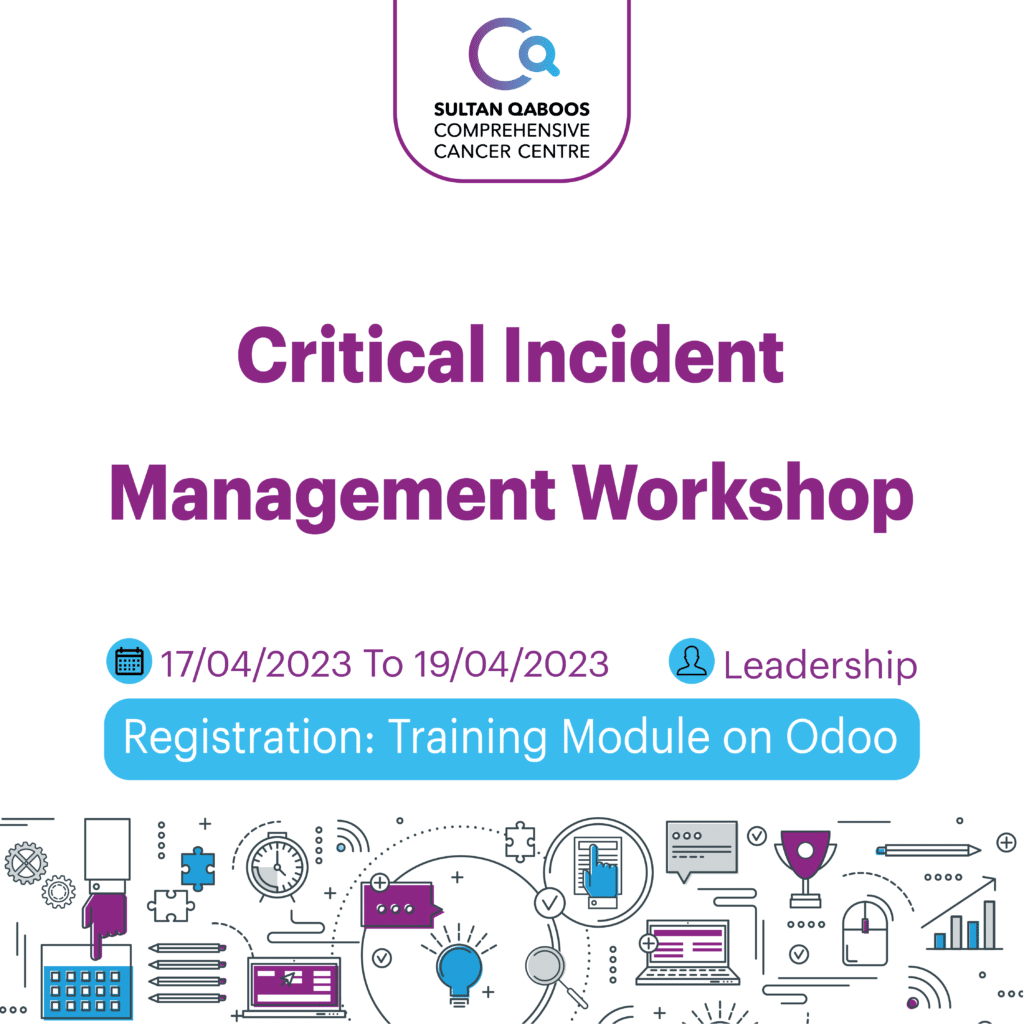
Objectives:
* Practice and develop the skills of strategic sense-making, decision-making, direction, and communication via the medium of a critical incident management exercise.
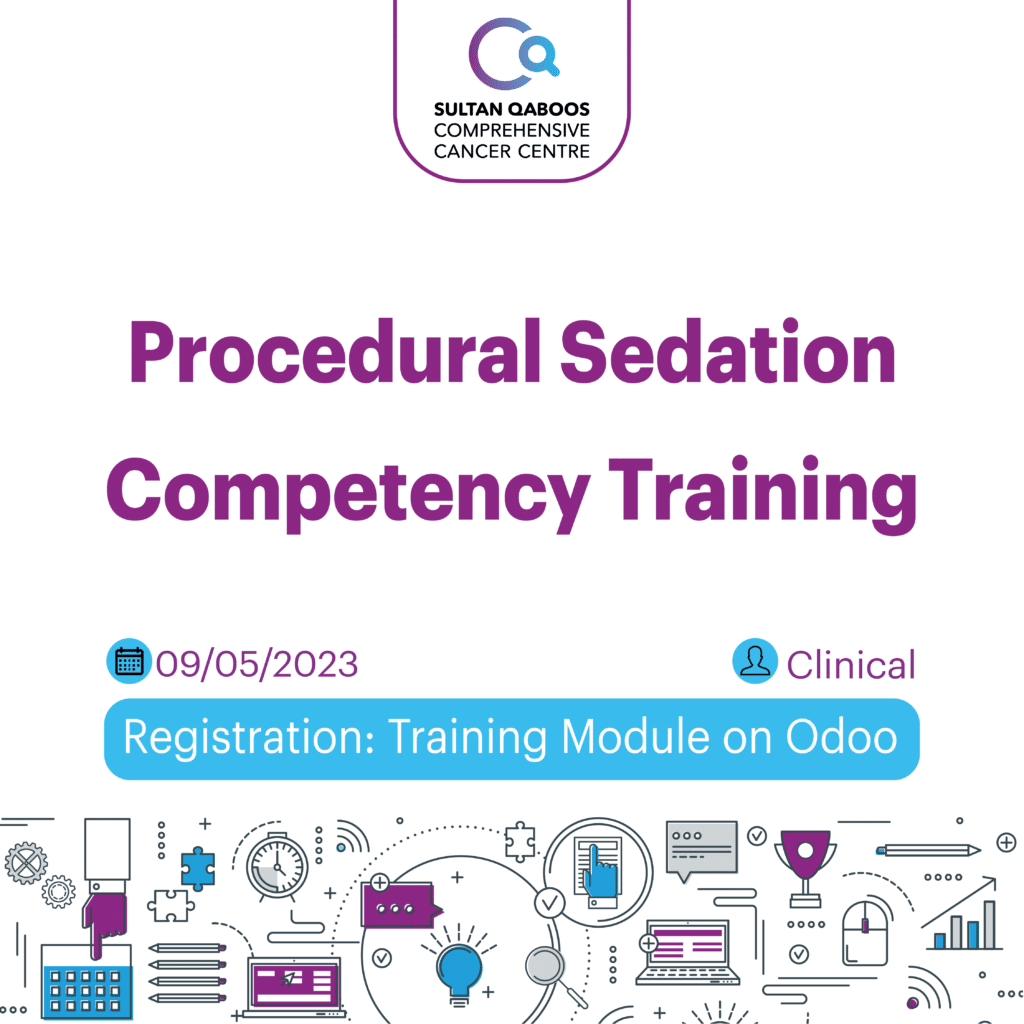
Objectives:
*Define moderate sedation and the qualifications of the sedation administrator. The course trains healthcare professionals on how to specify medications used for moderate sedation and reversal of oversedation. It identifies complications of moderate sedation and patient monitoring.
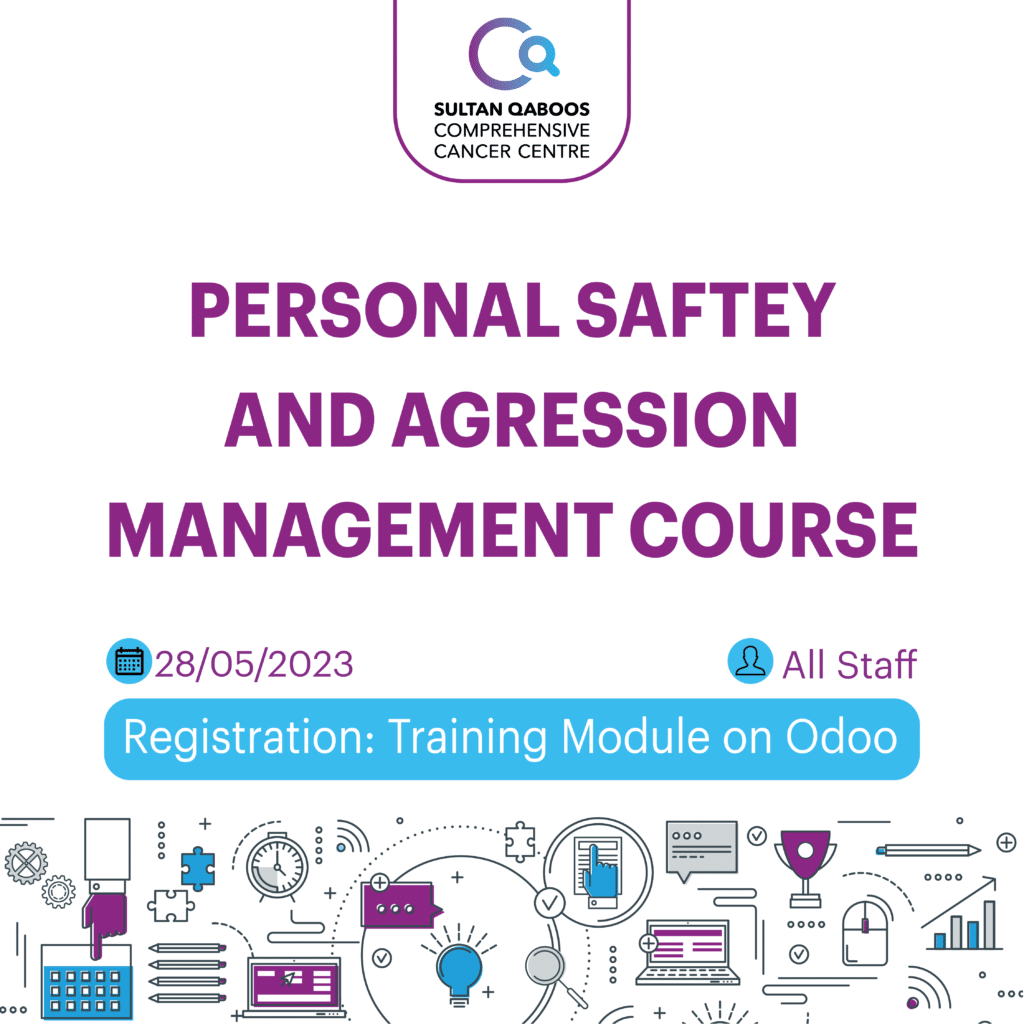
Objectives:
* Informing staff on personal safety and workplace violence management (provider-level standards) in order to effectively and competently handle workplace violence. One of the main objectives is to recognize early warning signs and symptoms of a client exhibiting aggressive and violent behaviour.
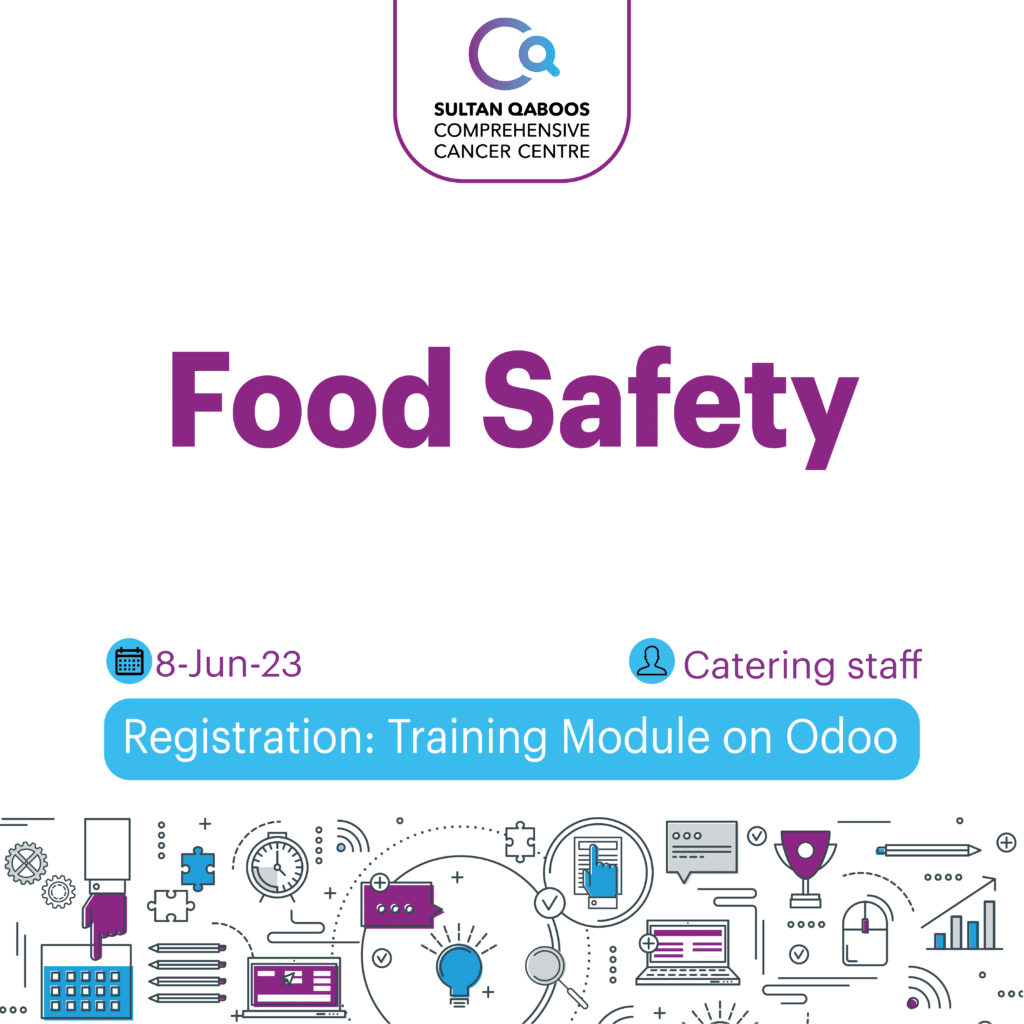
Objectives:
* The candidates after attending the food safety course will be able to understand personal responsibilities for food safety in a catering environment. Moreover, they will understand the importance of personal hygiene in a catering environment and the importance of keeping work areas clean and hygienic in a catering environment.
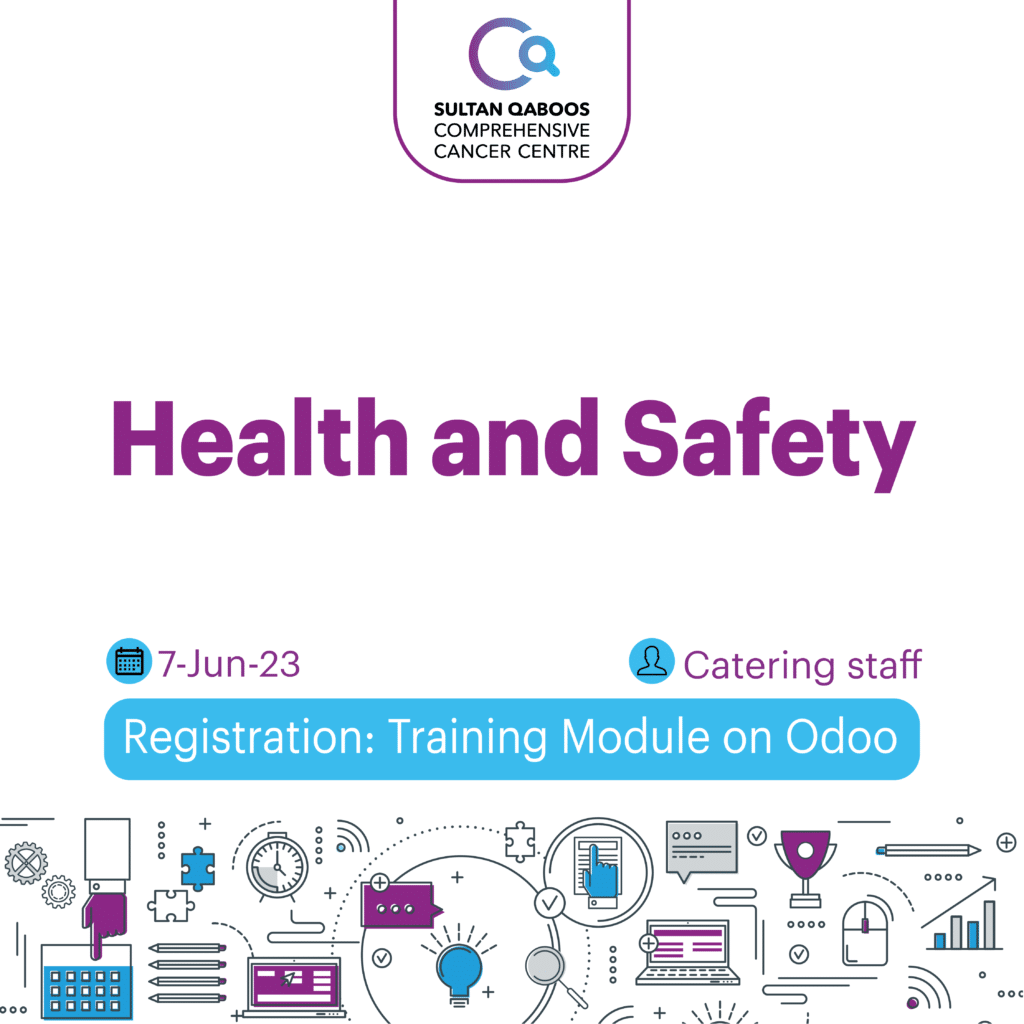
Objectives:
*The training program will provide the catering SQCCCRC staff with the core knowledge to understand the main responsibilities for health and safety in the workplace and to understand how the workplace can affect health and safety.
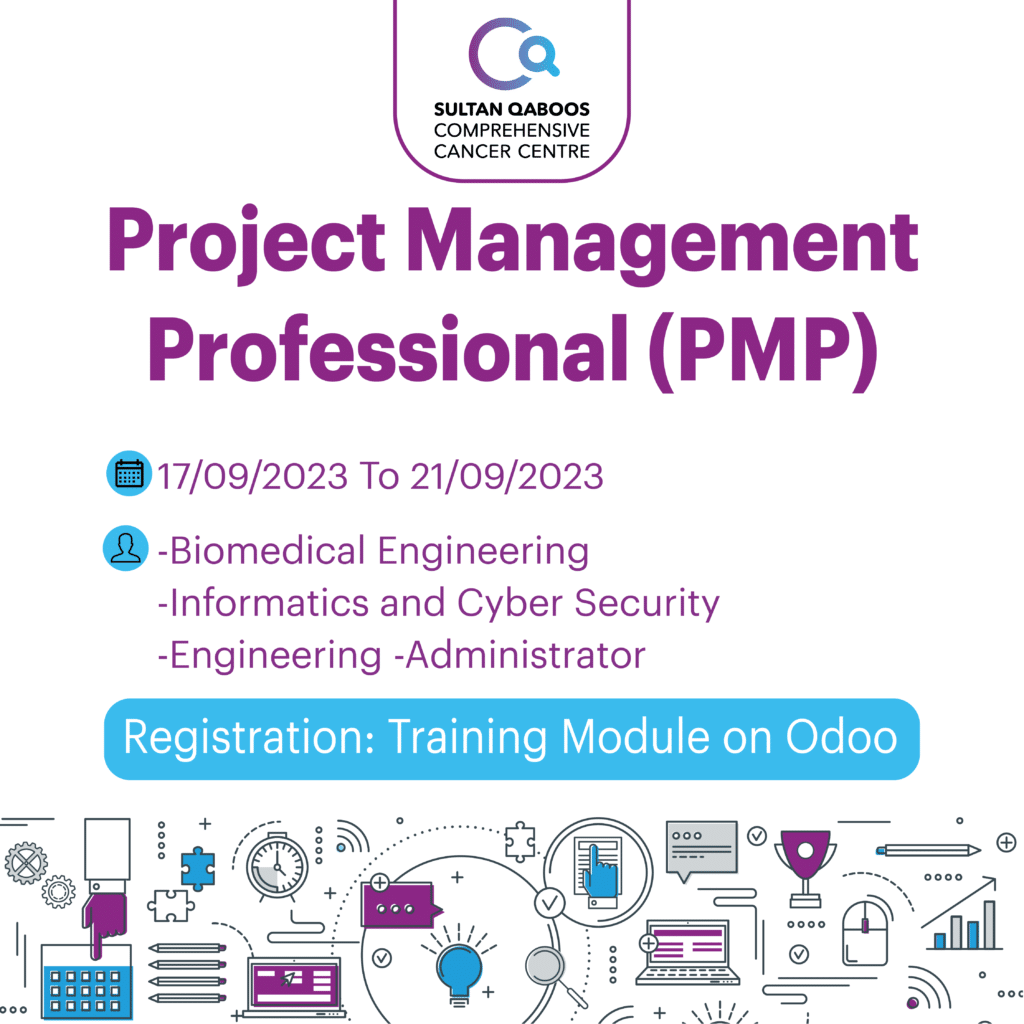
Objectives:
* The program aims to improve skills and build capabilities in the field of project management, and to determine the scope and controls of projects in terms of design and planning. Moreover, the program discussed the constraints that may affect projects in terms of risk, constraints, health and safety aspects. the program intensively focused on equipping the attendees with skills needed to effectively monito the project, related activities, goals and results.
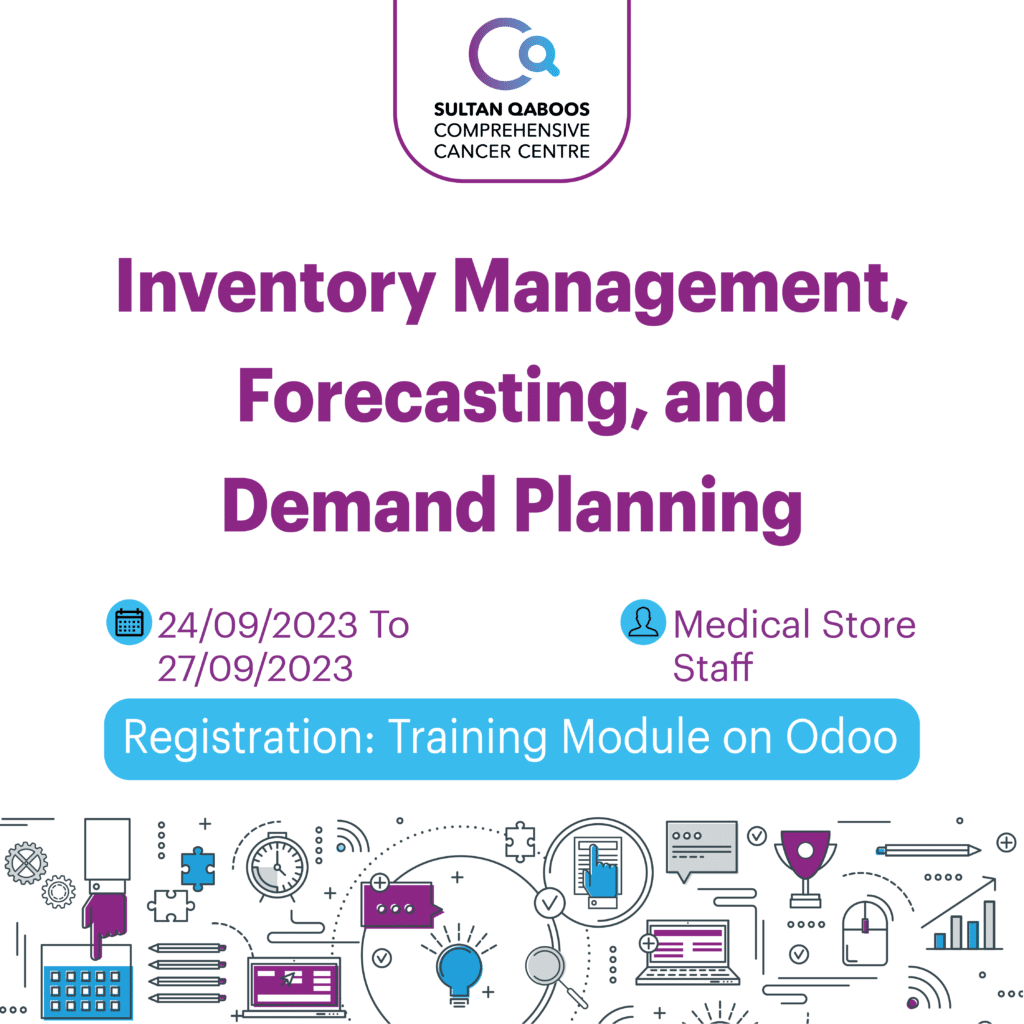
Objectives:
* The training program helps to determine the type of materials required from suppliers, their quantity, and the time of their delivery according to needs and demands. It also discusses how to track the product from the moment it was obtained until the beneficiaries purchased it. Identify administrative procedures that must be implemented to achieve success, the most important of which is identifying sound technology and innovation in the inventory in a way that suits customers’ desires, needs and regular patterns.
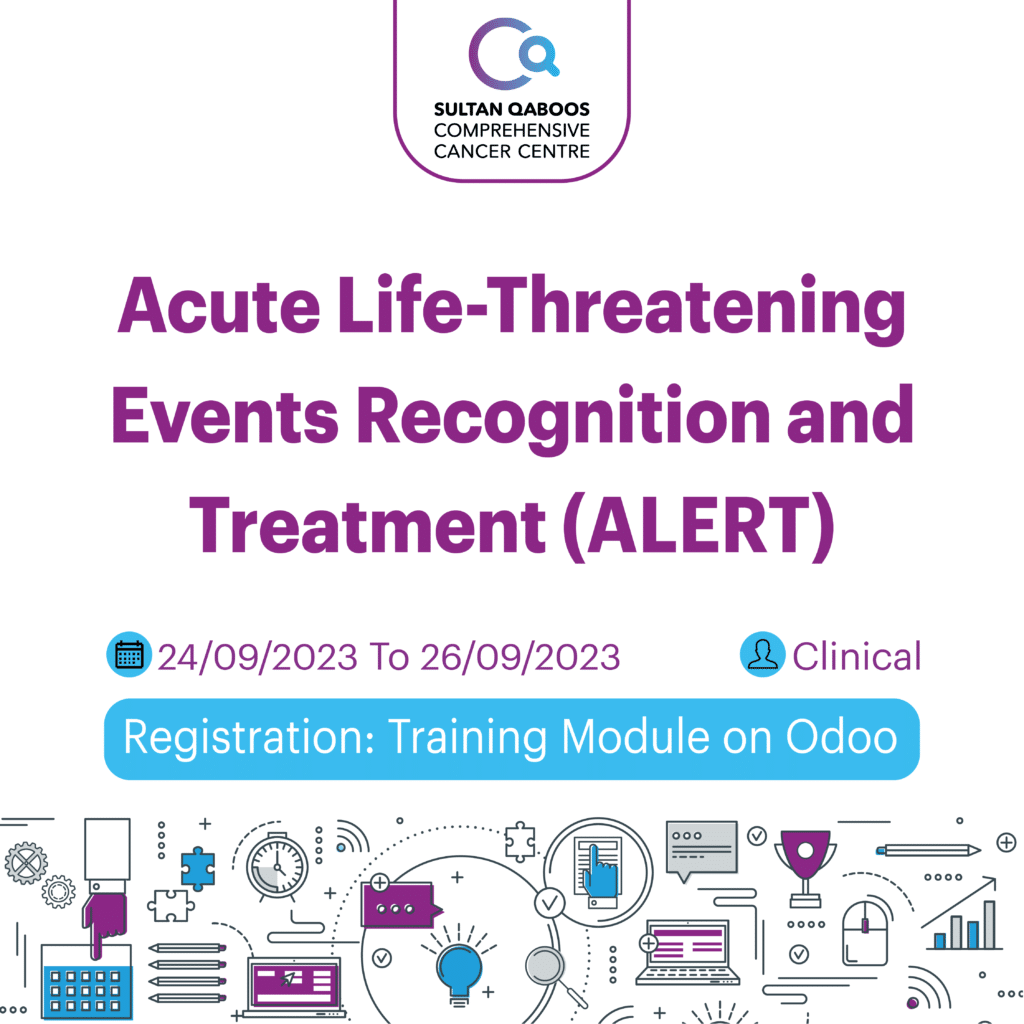
Objectives:
*The objective of the ALERT training is to improve the SQCCCRC concerned staff recognition of life threating signs and improve the decision-making regarding resuscitation status of the patients. Moreover, the ALERT training shall improve teamwork and plan communication among SQCCCRC staff working in high dependency areas, code blue and RRT teams.
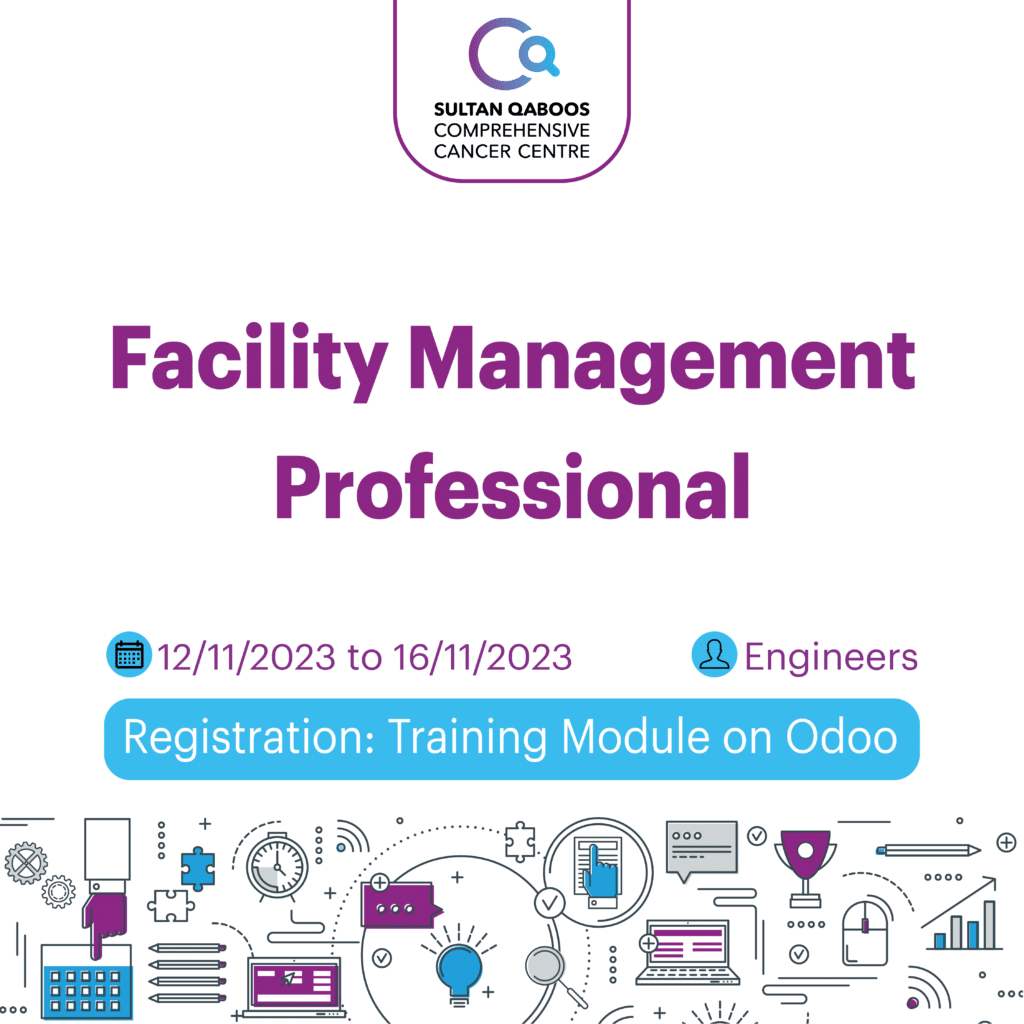
Objectives:
* The program explains the fundamental concepts and principles of facility management and differentiate them from related fields. It applies best practices and industry standards to manage and operate facility services, including maintenance, security, and sustainability.
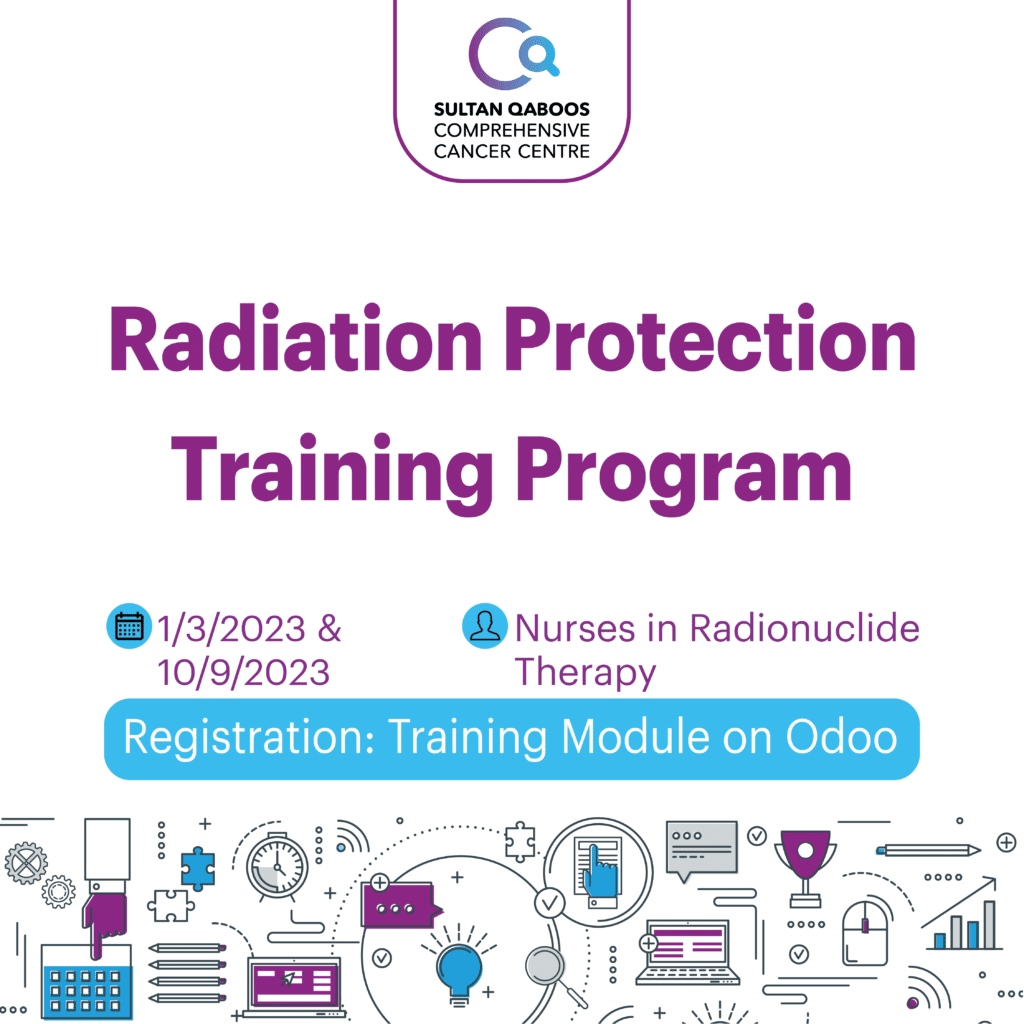
Objectives:
*At the end of the course, the participant will understand the following aspects of radiation Safety:
● Understanding basics nuclear physics and radiation.
● Quantification of Radiation Exposure.
● Principles of Radiation Protection.
● Current best practices in radiation safety with hands on practice on safety.
● Be aware of radiation accidents, along with the related techniques for investigation.
●Understand risk management techniques for preventing incident.
●Hands on use of radiation survey and monitoring equipment.

Input your search keywords.
